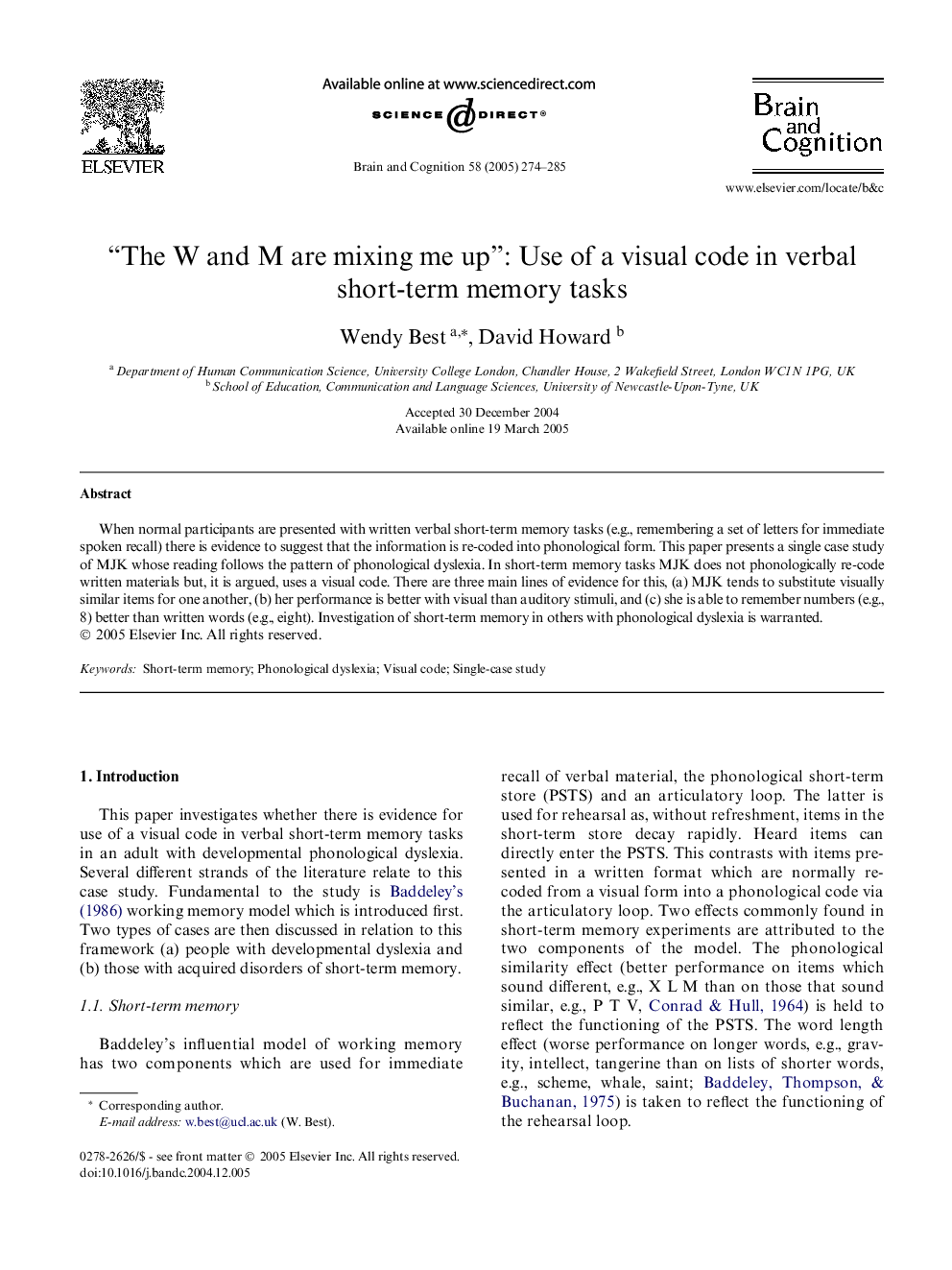| Article ID | Journal | Published Year | Pages | File Type |
|---|---|---|---|---|
| 10456229 | Brain and Cognition | 2005 | 12 Pages |
Abstract
When normal participants are presented with written verbal short-term memory tasks (e.g., remembering a set of letters for immediate spoken recall) there is evidence to suggest that the information is re-coded into phonological form. This paper presents a single case study of MJK whose reading follows the pattern of phonological dyslexia. In short-term memory tasks MJK does not phonologically re-code written materials but, it is argued, uses a visual code. There are three main lines of evidence for this, (a) MJK tends to substitute visually similar items for one another, (b) her performance is better with visual than auditory stimuli, and (c) she is able to remember numbers (e.g., 8) better than written words (e.g., eight). Investigation of short-term memory in others with phonological dyslexia is warranted.
Related Topics
Life Sciences
Neuroscience
Cognitive Neuroscience
Authors
Wendy Best, David Howard,
